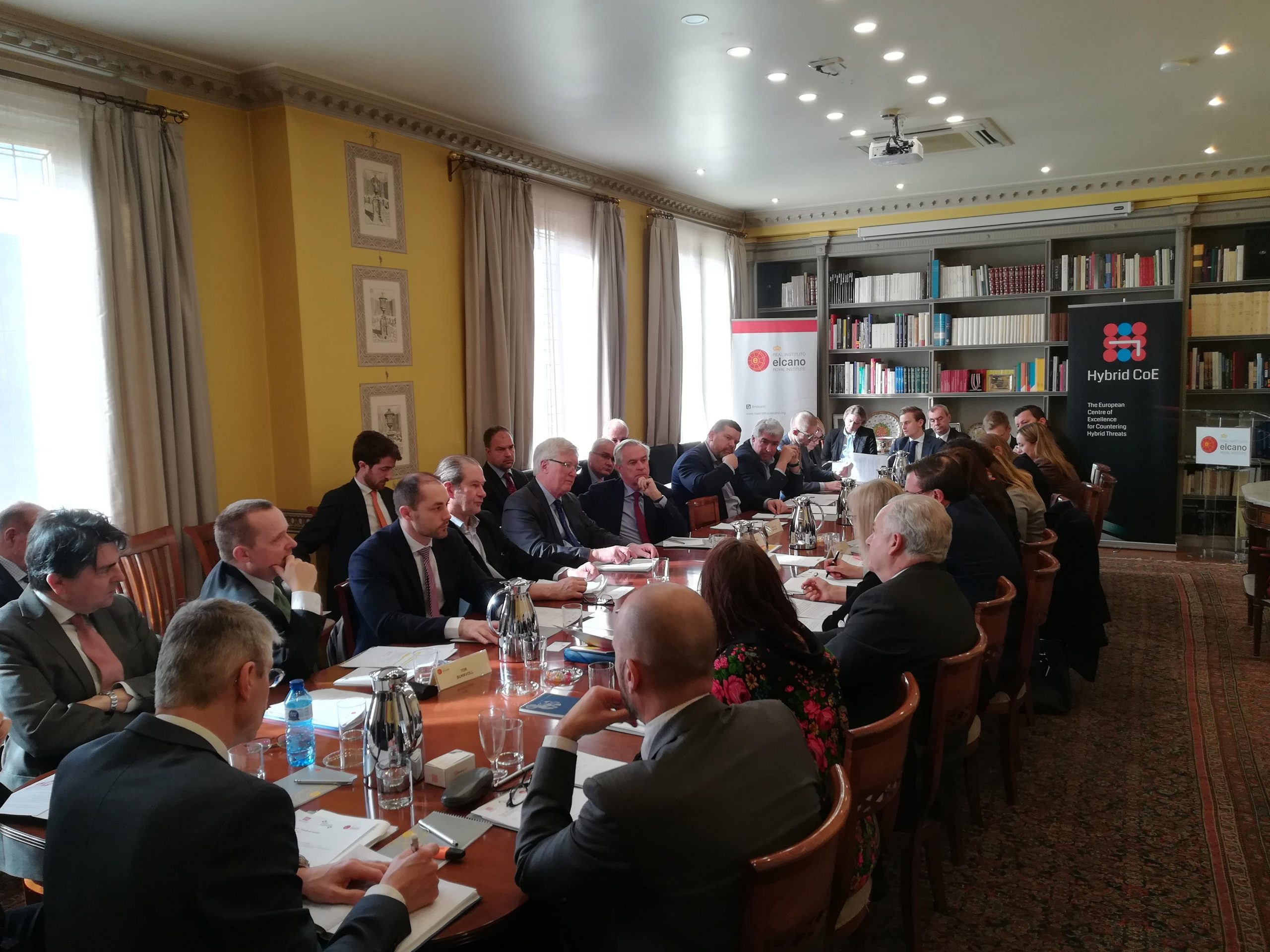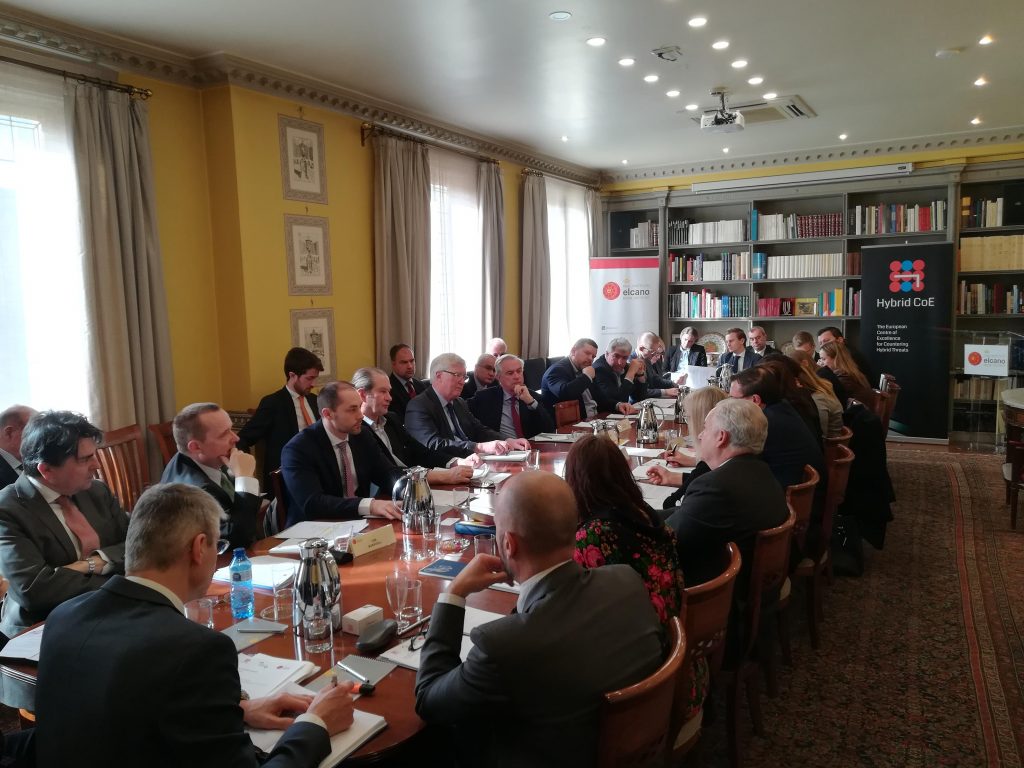
On 6 and 7 February, Andis Kudors, the Executive Director of the Centre for East European Policy Studies (CEEPS), took part in a European expert discussion in Madrid, organized by the The European Centre of Excellence for Countering Hybrid Threats.
Speaking at the event, A. Kudors pointed out that there has been a tendency for Russian foreign policy to ignore international law already for several years. Russia’s neighbouring countries, who did not use the historic short phase to carry out rapid reforms and join NATO, are particularly affected by such policy. The case of Ukraine shows that Russia can use a wide range of tools to achieve its goals – both conventional and hybrid.
The main Russian domestic and foreign policy trends that will affect EU Member States in the coming years were identified during the event. It was decided that researchers would continue to analyze Russia’s influence through traditional media, social media platforms, NGOs, foundations, private companies, and public diplomacy.
The event in Madrid was the second meeting of this expert group. The first discussion took place in 2018 in Helsinki. Expert meetings are scheduled to be held at least once a year to discuss current trends in Russian politics and foreign policy, with a particular focus on hybrid threats from Russia.
